Regulierung internationaler Finanzmärkte und Banken
Die Forschungsgruppe "Regulierung internationaler Finanzmärkte und Banken" analysiert internationale Kapitalströme und die Auswirkungen von Regulierungsänderungen auf die Finanzstabilität. Integrierte Finanzmärkte begünstigen eine effiziente Kapitalallokation und Risikoteilung – sie erleichtern aber auch die grenzüberschreitende Übertragung von Schocks.
Dementsprechend hat sich die Bankenregulierung in den letzten Jahren weiterentwickelt, wobei die vollen Auswirkungen dieser Reformen noch unklar sind. Daher konzentriert sich die Forschung der Gruppe auf zwei Bereiche:
Erstens werden die Haupttreiber internationaler Kapitalströme und deren Auswirkungen auf Finanzstabilität untersucht. Zeiten hoher Finanzintegration sind oft gefolgt von Krisen mit nachhaltigen realwirtschaftlichen Folgen. Ziel ist es, zu verstehen, wie eine stabile und effektive Kreditvergabe gewährleistet werden kann.
Zweitens wird untersucht, wie sich Veränderungen in der Regulierung und Aufsicht auf das grenzüberschreitende Bankgeschäft auswirken, insbesondere im Kontext der europäischen Integration. Dazu gehört die Bewertung des Trade-offs zwischen regulatorischer Harmonisierung und unbeabsichtigten Marktverzerrungen.
Zwei Datenprojekte tragen zu diesen Forschungsthemen bei: die International Banking Library, eine webbasierte Plattform für den Forschungsaustausch mit einem vierteljährlichen Newsletter, der mehr als 700 Abonnenten erreicht, und die Financial Markets Directives Database, die die Umsetzung der wichtigsten EU-Vorschriften im Bereich Finanzmärkte mit besonderem Schwerpunkt auf der Europäischen Bankenunion dokumentiert. Gemeinsam fördern sie eine evidenzbasierte Politikanalyse und erhöhen die Sichtbarkeit der Gruppe.
Forschungscluster
Wirtschaftliche Dynamik und StabilitätIhr Kontakt

- Abteilung Finanzmärkte
PROJEKTE
10.2021 ‐ 06.2025
Distributional Effects of Macroeconomic Policies in Europe (DEMAP)
Leibniz-Gemeinschaft
Das Projekt untersucht wie politische Maßnahmen auf dem Level der Europäischen Union, wie zum Beispiel der European Recovery Fund, die Ungleichheit zwischen Haushalten beeinflusst.
07.2017 ‐ 12.2022
Die politische Ökonomie der europäischen Bankenunion
Europäischer Sozialfonds (ESF)
Ursachen für nationale Unterschiede in der Umsetzung der Bankenunion und daraus resultierende Auswirkungen auf die Finanzstabilität.
01.2015 ‐ 12.2017
Dynamic Interactions between Banks and the Real Economy
Deutsche Forschungsgemeinschaft (DFG)
Referierte Publikationen
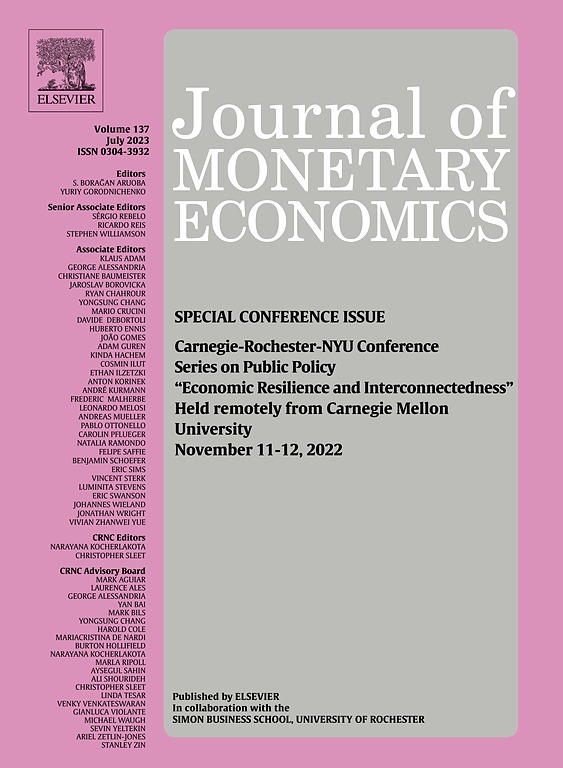
Lending Effects of the ECB’s Asset Purchases
in: Journal of Monetary Economics, December 2020
Abstract
<p>Between 2010 and 2012, the European Central Bank absorbed €218 billion worth of government securities from five EMU countries under the Securities Markets Programme (SMP). Detailed security holdings data at the bank level affirms an effective lending stimulus due to the SMP. Exposed banks contract household lending, but increase commercial lending substantially. Holding non-SMP securities from stressed EMU countries amplifies the commercial lending response. The SMP also improved liquidity buffers and profitability without compromising credit quality.</p>
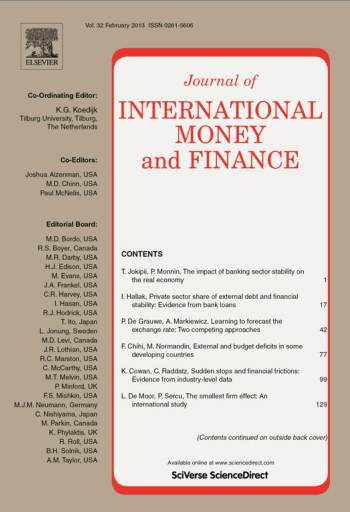
The Impact of Social Capital on Economic Attitudes and Outcomes
in: Journal of International Money and Finance, November 2020
Abstract
This article traces the extant literature on the impact of social capital on economic attitudes and outcomes. Special attention is paid to clarify conceptual ambiguities, measurement techniques, channels of influence, and identification strategies. Insights derived from the literature are then used to analyze the marketplace lending industry in China, where the size of the peer-to-peer (P2P) lending market is larger than that of the rest of the world combined. Ironically, approximately two-thirds of these online P2P lending platforms have failed. Empirical evidence from the monthly operating data of 735 lending platforms and transaction level data from one prominent platform (Renrendai) shows that platforms in provinces with high social capital have low risk of failure, and borrowers in provinces with high social capital can borrow at low interest rate and are less likely to default. We also provide observations to guide future economic research on social capital.

Finance and Wealth Inequality
in: Journal of International Money and Finance, November 2020
Abstract
Using a global sample, this paper investigates the determinants of wealth inequality capturing various economic, financial, political, institutional, and geographical indicators. Using instrumental variable Bayesian model averaging, it reveals that only a handful of indicators robustly matters and finance plays a key role. It reports that while financial depth increases wealth inequality, efficiency and access to finance reduce inequality. In addition, redistribution and education are associated with lower inequality whereas wars and openness to international trade contribute to greater wealth inequality.
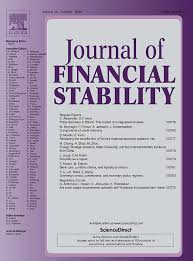
Are Bank Capital Requirements Optimally Set? Evidence from Researchers’ Views
in: Journal of Financial Stability, October 2020
Abstract
We survey 149 leading academic researchers on bank capital regulation. The median (average) respondent prefers a 10% (15%) minimum non-risk-weighted equity-to-assets ratio, which is considerably higher than the current requirement. North Americans prefer a significantly higher equity-to-assets ratio than Europeans. We find substantial support for the new forms of regulation introduced in Basel III, such as liquidity requirements. Views are most dispersed regarding the use of hybrid assets and bail-inable debt in capital regulation. 70% of experts would support an additional market-based capital requirement. When investigating factors driving capital requirement preferences, we find that the typical expert believes a five percentage points increase in capital requirements would “probably decrease” both the likelihood and social cost of a crisis with “minimal to no change” to loan volumes and economic activity. The best predictor of capital requirement preference is how strongly an expert believes that higher capital requirements would increase the cost of bank lending.
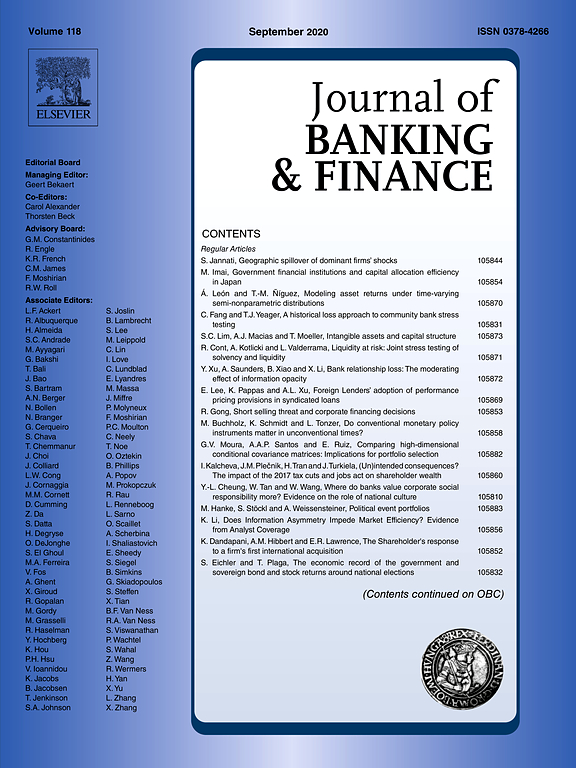
Do Conventional Monetary Policy Instruments Matter in Unconventional Times?
in: Journal of Banking and Finance, Nr. 105874, September 2020
Abstract
This paper investigates how declines in the deposit facility rate set by the ECB affect euro area banks’ incentives to hold reserves at the central bank. We find that, in the face of lower deposit rates, banks with a more interest-sensitive business model are more likely to reduce reserve holdings and allocate freed-up liquidity to loans. The result is driven by banks in the non-GIIPS countries of the euro area. This reveals that conventional monetary policy instruments have limited effects in restoring monetary policy transmission during times of crisis.
Arbeitspapiere

Friend or Foe? Crowdfunding Versus Credit when Banks are Stressed
in: IWH Discussion Papers, Nr. 8, 2015
Abstract
Does bank instability push borrowers to use crowdfunding as a source of external finance? We identify stressed banks and link them to a unique, manually constructed sample of 157 new ventures seeking equity crowdfunding. The sample comprises projects from all German equity crowdfunding platforms since 2011, which we compare with 200 ventures that do not use crowdfunding. Crowdfunding is significantly more likely for new ventures that interact with stressed banks. Innovative funding is thus particularly relevant when conventional financiers are facing crises. But crowdfunded ventures are generally also more opaque and risky than new ventures that do not use crowdfunding.
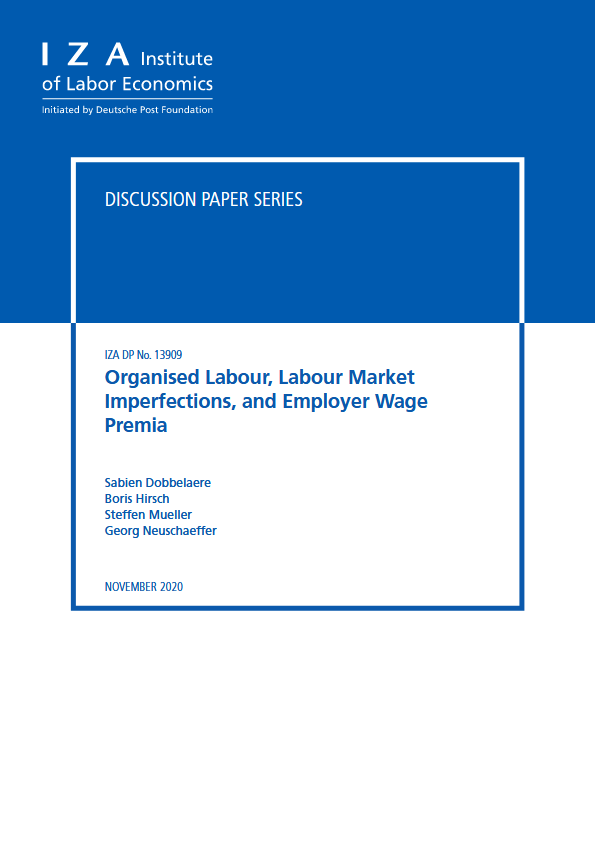
Explaining Regional Disparities in Housing Prices across German Districts
in: IZA Institute of Labor Economics, March 2022
Abstract
Over the last decade, German housing prices have increased unprecedentedly. Drawing on quality-adjusted housing price data at the district level, we document large and increasing regional disparities: growth rates were higher in 1) the largest seven cities, 2) districts located in the south, and 3) districts with higher initial price levels. Indications of price bubbles are concentrated in the largest cities and in the purchasing market. Prices seem to be driven by the demand side: increasing population density, higher shares of academically educated employees and increasing purchasing power explain our findings, while supply remained relatively constrained in the short term.















